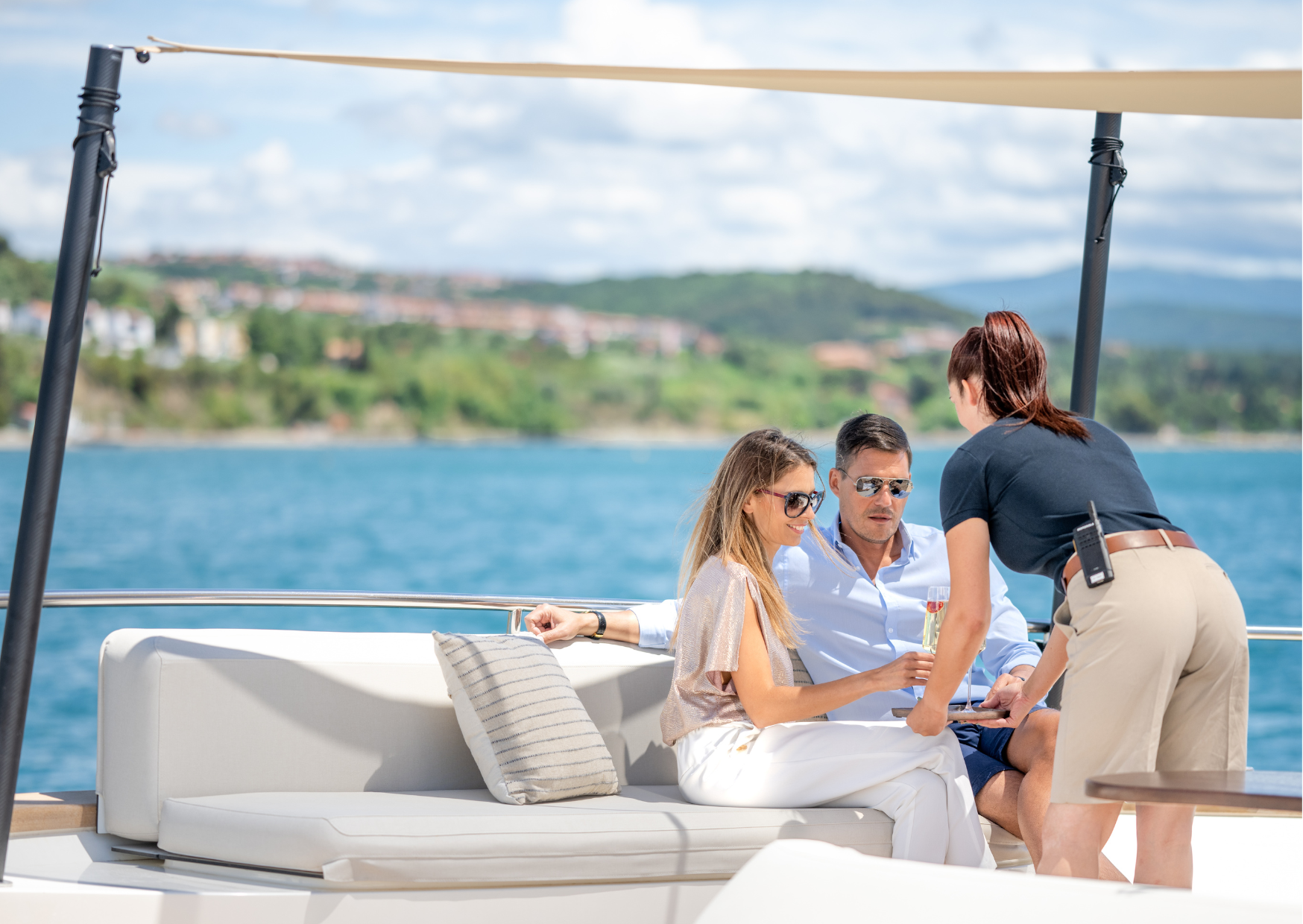Does yachting prioritise “pretty” over qualified?

As a former Chief Stewardess who now specialises in placing crew members in various departments with The Crew Hunter, I’ve recently been speaking to many Chief Stewardesses for positions on 70-100m+ yachts. This experience has highlighted a concerning, unfair, but unfortunately not surprising trend in the yachting industry – the overemphasis on looks for female interior crew.
Whilst presenting a professional appearance is essential in yachting, as it is in aviation and luxury hospitality, the prioritisation of physical attractiveness over qualifications and experience for interior positions is troubling. We wouldn’t choose an Officer, Head Chef, or Chief Engineer based primarily on their looks, so why is it different for interior crew?
Here, we take a closer look at these issues and invite you to share your own experiences in our short survey.

Captains and hiring partners often begin their requests with a long list of desired qualities: “We want a happy bubbly Chief Stew with tons of experience on a certain size vessel, with proven longevity, great at making quick decisions, skin on their nose, great at leading a large team, good at admin, mentoring juniors, excellent service skills, maturity, easy going, fluent in English, creative, calm but enthusiastic, no ego, no drama…” The list goes on. So, I’m essentially looking for the same unicorn candidate for all of these yachts.
But the conversation inevitably shifts and I get told the age limits or how pretty they “must” be. I spoke to one Captain at length about what they wanted, who told me: “We want a CS between 27 and 34…and she has to be pretty.” I can’t help but wonder, do younger crew realistically possess the necessary life experience to be an effective leader and mentor for junior crew? Was I a good leader at that age? Or was I a better leader once I had more life experience under my belt?

I recently encountered a situation where a Captain chose a candidate with limited experience on smaller yachts over highly qualified individuals simply because she was considered “prettier.” Pretty is subjective, and prioritising it over experience and leadership potential can lead to underqualified individuals managing large teams.
The captain eventually texted me saying they had now found their next Chief Stew. A candidate with no experience on any yacht over 50m where teams typically consist of around 3 crew members, but she was “pretty”. She now has to lead a team of around 7 on a 70+ metre motoryacht – a significant step up in responsibility.
It’s important to remember that the size of the interior team doesn’t always correlate directly with the size of the yacht. Not all yachts are built the same, and some 70m yachts may have larger interior teams than others. As recruiters, we consider every aspect of each client, including the size of the vessel, the team dynamics, the onboard culture, and more, to find the perfect candidate. We strive to recommend crew who are not only qualified but also the right fit for the existing team.
This begs the question: how am I supposed to do my job effectively when the primary focus is on a candidate’s physical appearance? Are there enough supermodels out there who want to work on yachts? (On a side note, please call me if you have been a model – there are plenty of yachts who will consider you with little to no experience…)
The yachting industry often claims to value diversity and equal opportunities, yet there’s a clear preference for certain nationalities and age groups. “No Eastern European…no Americans…” These biases limit the talent pool and can lead to missed opportunities for exceptional candidates.
In terms of requests for Native English speakers, I completely understand the importance of communication and cultural similarities. However, as a non-native English speaker myself, I have never felt unable to communicate clearly or felt like I don’t fit in.
When submitting crew, I would never put someone forward for a job who can’t communicate clearly in the necessary language for the job. But I wonder, would non-native English speakers have a better chance if they are pretty?

The competition for skilled crew is fierce. Yachts with less attractive packages, lower salaries, and no rotation struggle to attract top talent. Yet, they often cling to unrealistic expectations of finding a “supermodel” Chief Stew with extensive experience.
Discrimination based on age isn’t just confined to the interior department. We have seen incredibly talented Engineers over 40 miss out on roles because they are perceived as less physically able than someone 10 years younger (despite these guys running ironmans!). Perhaps this is more about crew dynamics and a desire for people of similar ages onboard, but in an industry where the priority should be delivering the highest level of service, it simply doesn’t seem right.
While this type of ageism can affect both men and women, the discrimination based purely on perceived beauty seems largely limited to female crew.
It is illegal to advertise a role stating gender, age, nationality, and other protected characteristics, and yet these are clearly deciding factors for many yachts. Where are we heading, and how many interior crew will be left in this industry if these are the only factors that matter? Do we really want an interior run by someone with no managerial skills, simply because they are considered “pretty”? (I’m not saying pretty girls don’t have those skills, but younger crew often need more life experience before managing a larger team).
This situation raises several questions. Are owners fully aware of the importance of an experienced Head of Department? Are the same standards of attractiveness applied to deck officers and other (male) members of the team? Or are good qualifications and experience considered enough?
I believe it’s time for a frank discussion about these issues. We need to prioritise skills, experience, and leadership potential over subjective standards of beauty. Only then can we ensure the continued success and professionalism of the yachting industry.
I welcome your thoughts and concerns on this matter. Please feel free to take part in our survey and note that all participation will be treated as confidential to encourage an honest and open discussion.
Share your thoughts in our short survey here.